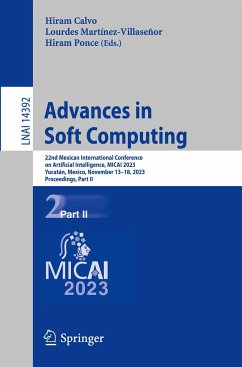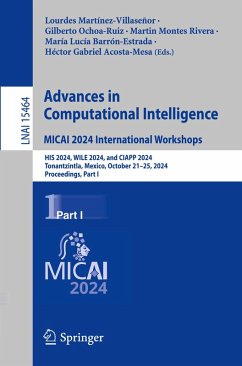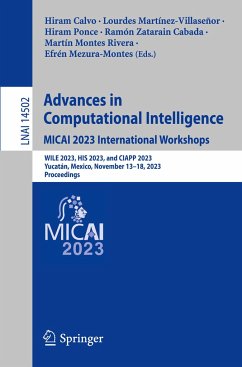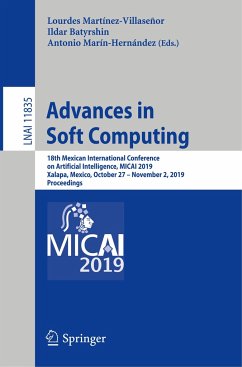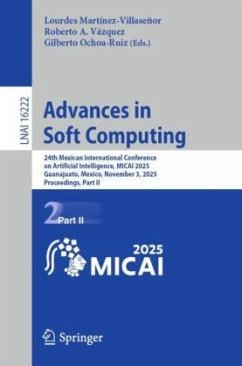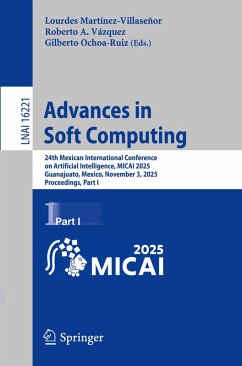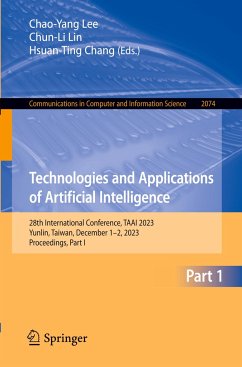
Advances in Soft Computing
23rd Mexican International Conference on Artificial Intelligence, MICAI 2024, Tonantzintla, Mexico, October 21-25, 2024, Proceedings, Part II
Herausgegeben: Martínez-Villaseñor, Lourdes; Ochoa-Ruiz, Gilberto

PAYBACK Punkte
22 °P sammeln!
The two-volume set, LNAI 15246 and 15247, constitutes the proceedings of the 23rd Mexican International Conference on Artificial Intelligence, MICAI 2024, held in Tonantzintla, Mexico in October 21-25, 2024.
The 37 full papers presented in these proceedings were carefully reviewed and selected from 141 submissions. The papers presented in these two volumes are organized in the following topical sections:
Part I - Machine Learning; Computer Vision.
Part II - Intelligent Systems; Bioinformatics and Medical Applications; Natural Language Processing.
The 37 full papers presented in these proceedings were carefully reviewed and selected from 141 submissions. The papers presented in these two volumes are organized in the following topical sections:
Part I - Machine Learning; Computer Vision.
Part II - Intelligent Systems; Bioinformatics and Medical Applications; Natural Language Processing.





